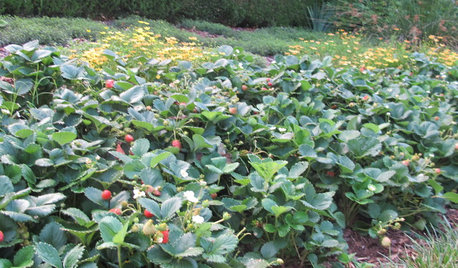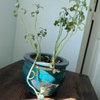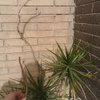Water Soluble Organic Fertilizers
suburbangardenMD
12 years ago
Related Stories

GARDENING GUIDESGet on a Composting Kick (Hello, Free Fertilizer!)
Quit shelling out for pricey substitutes that aren’t even as good. Here’s how to give your soil the best while lightening your trash load
Full Story
GARDENING GUIDESHow to Switch to an Organic Landscape Plan
Ditch the chemicals for a naturally beautiful lawn and garden, using living fertilizers and other nontoxic treatments
Full Story
GARDENING GUIDESHow to Keep Your Citrus Trees Well Fed and Healthy
Ripe for some citrus fertilizer know-how? This mini guide will help your lemon, orange and grapefruit trees flourish
Full Story
GARDENING GUIDESCommon Myths That May Be Hurting Your Garden
Discover the truth about fertilizer, soil, staking and more to keep your plants healthy and happy
Full Story
REGIONAL GARDEN GUIDESSoutheast Gardener's September Checklist
Fertilize strawberries, plant a tree or two and beckon hummingbirds to your Southern garden this month
Full Story
GARDENING GUIDESPacific Northwest Gardener: What to Do in September
Put in cool-weather veggies, fertilize your lawn and tidy the garden this month before chilly weather arrives
Full Story
LANDSCAPE DESIGNGet Along With Less Lawn — Ideas to Save Water and Effort
Ditch the mower and lower your water bill while creating a feast for the eyes with diverse plantings and gathering places
Full Story
LIFEThe Top 5 Ways to Save Water at Home
Get on the fast track to preserving a valuable resource and saving money too with these smart, effective strategies
Full Story
SAVING WATERXeriscape Gardens: How to Get a Beautiful Landscape With Less Water
Conserve water and make gardening much easier with the xeriscape approach’s 7 principles
Full Story
GARDENING GUIDES9 Ways to Be Water-Wise in the Edible Garden
Consider these tips to get a healthy backyard crop that uses less water
Full Story








Bob1016
kristimama
Related Professionals
Fitchburg Landscape Architects & Landscape Designers · Hyattsville Landscape Architects & Landscape Designers · Americus Landscape Contractors · Berwyn Landscape Contractors · El Sobrante Landscape Contractors · Franklin Landscape Contractors · Inglewood Landscape Contractors · Royal Oak Landscape Contractors · Stony Brook Landscape Contractors · West Haverstraw Landscape Contractors · Forest Park Solar Energy Systems · Lakeville Solar Energy Systems · Prunedale Solar Energy Systems · Phelan Window Contractors · Vero Beach Window ContractorsBob1016
tapla (mid-Michigan, USDA z5b-6a)
suburbangardenMDOriginal Author
Bob1016
suburbangardenMDOriginal Author
Bob1016
TheMasterGardener1
suburbangardenMDOriginal Author
TheMasterGardener1
suburbangardenMDOriginal Author
Bob1016
suburbangardenMDOriginal Author
TheMasterGardener1
suburbangardenMDOriginal Author
TheMasterGardener1
Bob1016
TheMasterGardener1
suburbangardenMDOriginal Author
jl76358
TheMasterGardener1